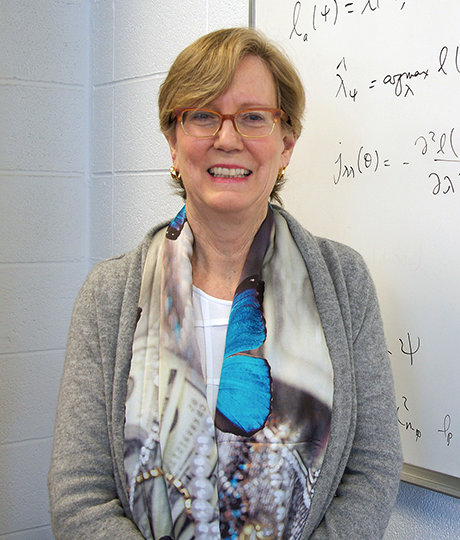Plenary Speakers | June 6-9
The following plenary speakers are confirmed:
| Date and Time |
Speaker |
Title |
|
Wednesday, June 7th 9:00 am to 10:00 am |
(Duke University) |
Comparing Frequentist and Bayesian Control of Multiple Testing |
|
Abstract: Multiple testing is increasingly occurring in science. For example, in Genome Wide Association Studies (GWAS), it is not uncommon to simultaneously conduct many millions of tests. Frequentists and Bayesian both seek to control for such multiple testing, but they approach the control very differently. The two approaches will be illustrated and contrasted in four situations: (i) GWAS, (ii) Optional Stopping (e.g., continuing to collect data until obtaining a desired result; (iii) Sequential endpoint testing, and (iv) Subgroup analysis. |
||
|
Thursday, June 8th 9:00 am to 10:00 am |

Nancy Reid |
The Role of Theory in Statistical Science |
|
Abstract: The Purdue Symposium Series is an important institution in the evolution of statistical science over its long history, and we can follow the development of the field through the many topics featured. While the emphasis has naturally changed with the times, an essential aspect of the Purdue Symposia is the ongoing emphasis on, and appreciation for, the theory of statistics. It is the theory of our subject that distinguishes it from the many, many fields of research in which statistical thinking is a key intellectual component. In this talk I will emphasize the ongoing importance and relevance of theoretical advances and theoretical thinking, mainly through illustrative examples. |
||
|
Friday, June 9th 9:00 am to 10:00 am |
(The University of Chicago) |
Coherent Clustering with Applications |
|
Abstract Many clustering methods are available in the literature for independent or serially dependent data. Some of those methods remain applicable for large-scale data. However, many open issues remain in clustering analysis. In this talk, the concept of coherent clustering is introduced by which the clustering method used cannot subdivide any cluster it finds in its first application. This paper proposes a coherent clustering procedure that is applicable to both independent data and serially correlated data. It also demonstrates the value of applying coherent clustering methods over some clustering methods commonly used in the literature. We use real and simulated examples to illustrate the applicability and power of the proposed clustering method. (Joint work with Daniel Pena of Spain.)
|
||
|
Thursday, June 8th 1:30 pm to 2:30 pm |
(University of California, Berkeley) |
Boolean Interactions: Practice and Theory |
|
Abstract: Thresholding or Boolean behaviors of biomolecules underlie many biological processes. Decision-trees capture such behaviors and tree-based methods such random forests have been shown to succeed in predictive tasks in genomics and medicine. In this talk, we first review iterative random forests (iRF) for predictable and stable Boolean interaction discovery, by applying the Predictability-Computability-Stability (PCS) framework for veridical data science. Then we employ iRF to discover gene-gene interactions that possibly make a DNA segment an enhancer in Drosophila, and gene-gene epistasis for human phenotype red-hair. These empirical successes of iRF motivate a theoretical investigation of its tractable version under a new local sparse and spiky (LSS) model where regression function is a linear combination of Boolean interactions of features. The tractable version of iRF is shown to be model selection consistent under this new model with conditions of feature independence and non-overlapping interactions. |
||


